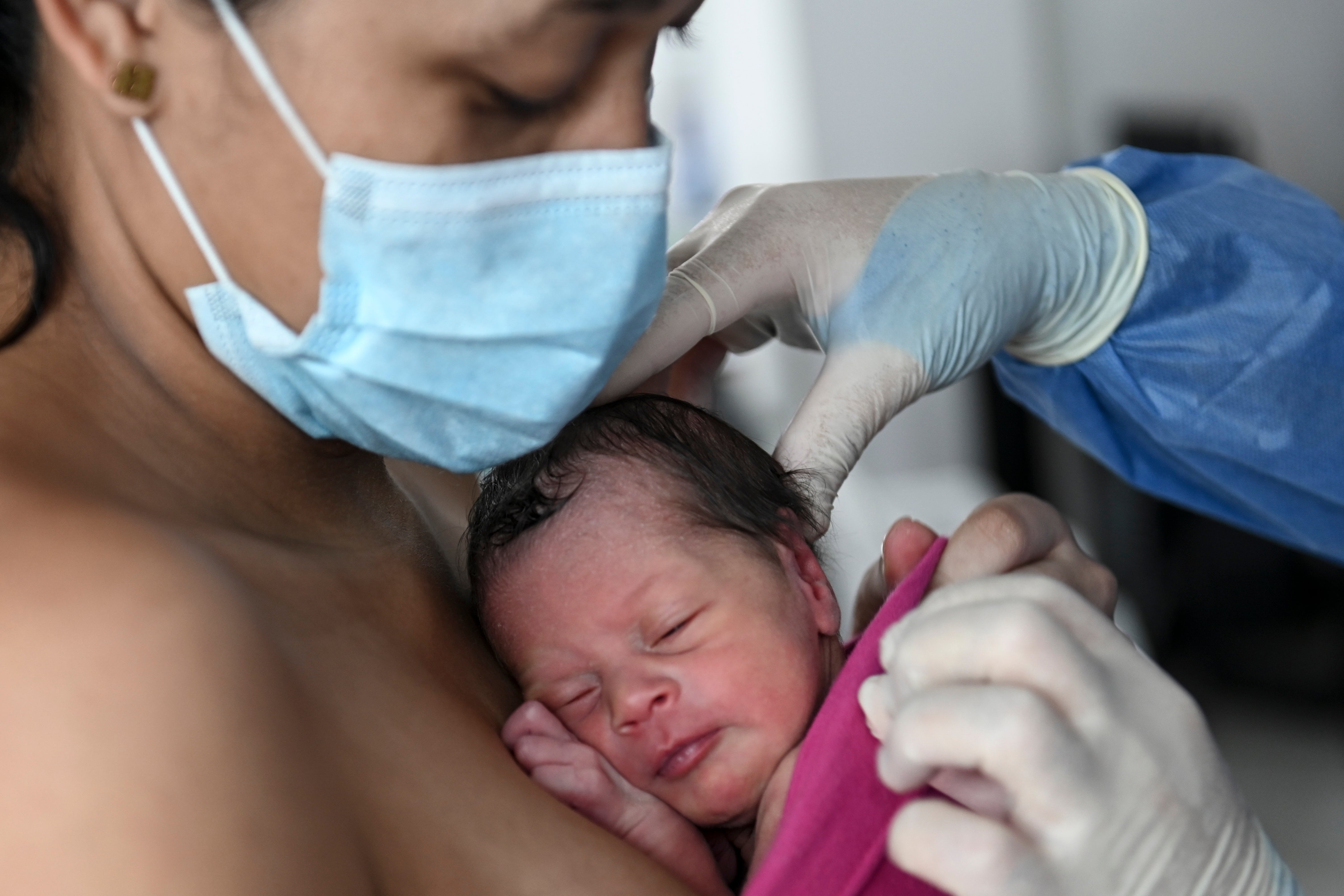Vaccinated mothers’ breast milk ‘contains antibodies that help protect babies’
Although the study is small, researchers say that it is encouraging

Your support helps us to tell the story
From reproductive rights to climate change to Big Tech, The Independent is on the ground when the story is developing. Whether it's investigating the financials of Elon Musk's pro-Trump PAC or producing our latest documentary, 'The A Word', which shines a light on the American women fighting for reproductive rights, we know how important it is to parse out the facts from the messaging.
At such a critical moment in US history, we need reporters on the ground. Your donation allows us to keep sending journalists to speak to both sides of the story.
The Independent is trusted by Americans across the entire political spectrum. And unlike many other quality news outlets, we choose not to lock Americans out of our reporting and analysis with paywalls. We believe quality journalism should be available to everyone, paid for by those who can afford it.
Your support makes all the difference.Breast milk of mothers who have had two Covid-19 vaccines contains antibodies that could help protect babies from coronavirus, a study has found.
The study was conducted between December 2020 and March 2021 and although small, is encouraging, researchers say.
In total, 21 US healthcare workers were recruited who had never previously had Covid. This was around the time when vaccines first became available to healthcare workers in the US.
Mothers’ breast milk and blood was sampled three times - prior to having the vaccine, after the first dose and then again after the second dose.
Results showed that there was a robust antibody response in blood and breast milk after the second dose. This was around a one hundred-fold increase compared with levels before vaccination.
It also seemed that the levels of antibodies present post-vaccine were higher than those seen after natural infection with the virus.
When babies are born, their underdeveloped immune systems means that it is hard for them to fight off infections. They are therefore often also too young to respond adequately to certain types of vaccines, say experts.
Joseph Larkin III, senior author of the study and an associate professor at the University of Florida, said: “Our findings show that vaccination results in a significant increase in antibodies against SARS-CoV-2 - the virus that causes Covid-19 - in breast milk, suggesting that vaccinated mothers can pass on this immunity to their babies, something we are working to confirm in our ongoing research.”
Meanwhile, Josef Neu, one of the study’s co-authors and a professor in the University of Florida’s College of Medicine’s department of paediatrics, division of neonatology, explained: “Think of breast milk as a toolbox full of all the different tools that help prepare the infant for life.
“Vaccination adds another tool to the toolbox, one that has the potential to be especially good at preventing Covid-19 illness.
“The results of our study strongly suggest that vaccines can help protect both mum and baby, another compelling reason for pregnant or lactating women to get vaccinated.”
Researchers are continuing their work looking into how breast milk containing Covid antibodies gained via vaccinations could protect babies who ingest it. However, they said that initial results were encouraging.
The study has been published in the journal Breastfeeding Medicine. It was funded by the Children’s Miracle Network.
Join our commenting forum
Join thought-provoking conversations, follow other Independent readers and see their replies
Comments